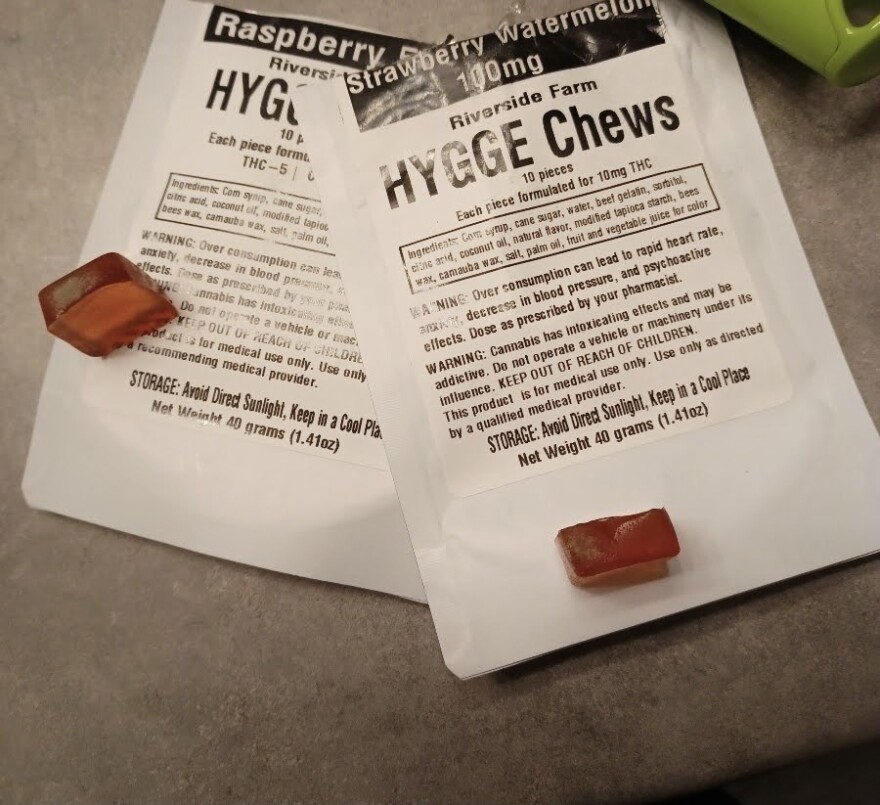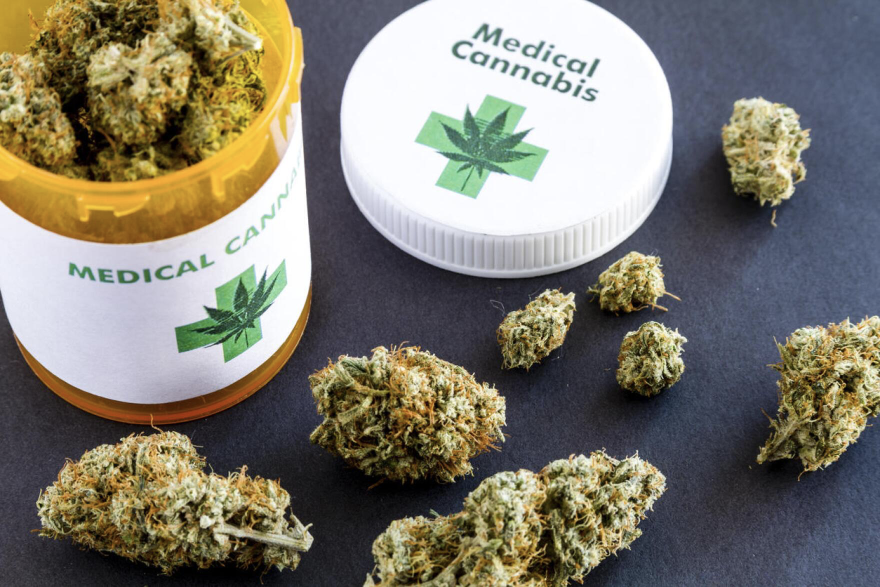Since 2020, the state’s medical cannabis program has seen substantial growth. An annual report last year found that the number of active cardholders more than tripled, and pharmacies in the state more than doubled.
But despite the expansion of the program, patients are having a difficult time accessing the medicine due to renewal and product costs.
Zachary King lives in Bountiful. Years ago, he was in a paintball accident that left him with chronic pain. He’s been a medical marijuana cardholder for almost two years now.
King pays out of pocket for his doctors' appointments and medicine. He said it’s very expensive to access cannabis.
“It's almost like we're more incentivized to go back to our pharmaceuticals than to utilize the cannabis option because it's just so much more affordable with the insurance and with all those other things,” King said.
That primarily has to do with a supply and demand issue. In Utah, due to state law, there are a certain number of allotted suppliers who are allowed to grow and sell marijuana in the state.
“I'm actually to the point where I have to decide whether I'm going to pay my mortgage or get my medicine,” he said.
Similarly, Emily Tucker, a brain tumor patient, has been a cardholder for almost two years. She’s turned to medical marijuana to help deal with pain and nausea.
Tucker lives in Saratoga Springs and drives almost an hour to get her medicine.
She said the quality of the products isn’t up to standards and that it’s pricey. She once had to return several bags of edibles because they had mold on them.

“This is not what we voted for,” Tucker said. “The access [is] not enough [for] people who can get this and who could actually benefit.”
Christine Stenquist, founder of TRUCE, a medical cannabis advocacy group, said she’s heard similar accounts of people who are facing accessibility issues. She said there needs to be real change with how the program is operating. One solution she suggested was to increase the number of people who are allowed to grow and sell medical cannabis.
“I think we just need some more acceptance from our legislators and our regulators,” Stenquist said. “We're still treated like criminals and you can feel it [in] how they've set up the program to be so financially restrictive and so cumbersome to access.”
The 2021 annual report also found that accessibility has been a big issue. Health department officials say they plan to work with the Utah Department of Agriculture and Food to find ways to address growing concerns.
Rich Oborn, director of the Center for Medical Cannabis at the health department, said they are looking to roll out two initiatives that would aid in this issue.
One would increase accessibility to the number of providers who’d be able to prescribe a medical marijuana card. Another would create a website that would help compare and assess costs at prescribing doctor's offices.
Oborn said a lot of the issues the state program is seeing are a result of its newness and will resolve as it continues to grow.
"We're growing. We're very new. Not as much supply so the price is going to be a bit higher. But over time, the price goes down as there's a bigger supply," he said in a phone interview.


